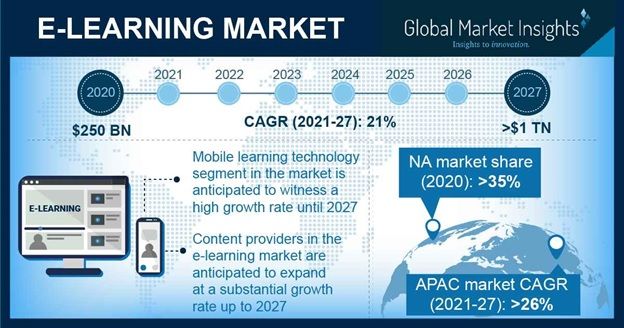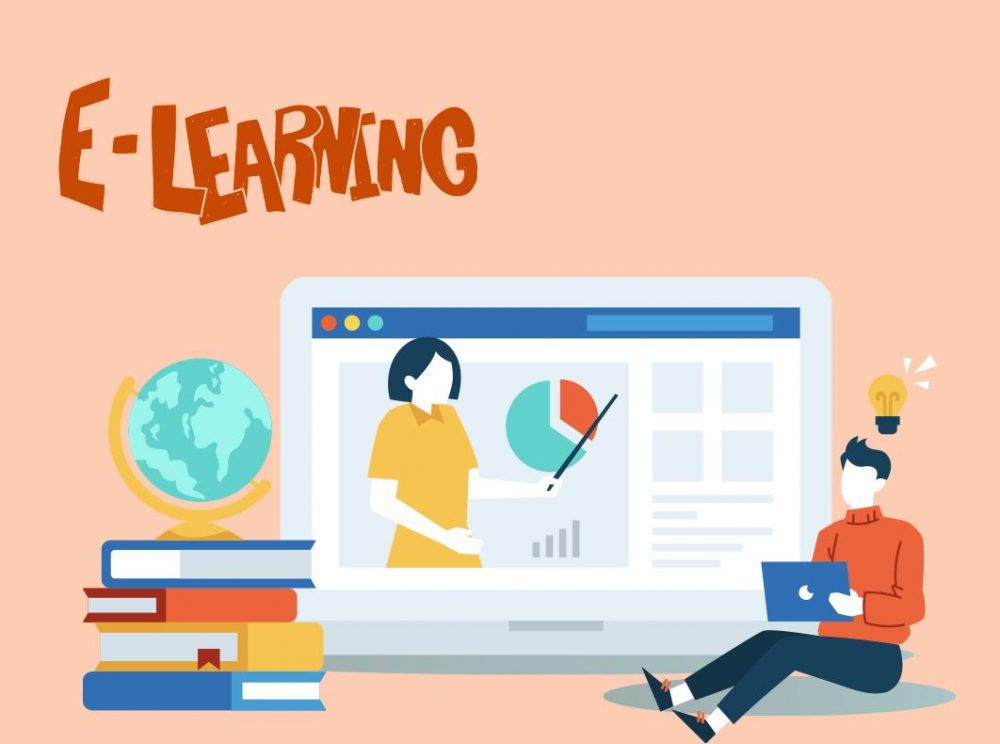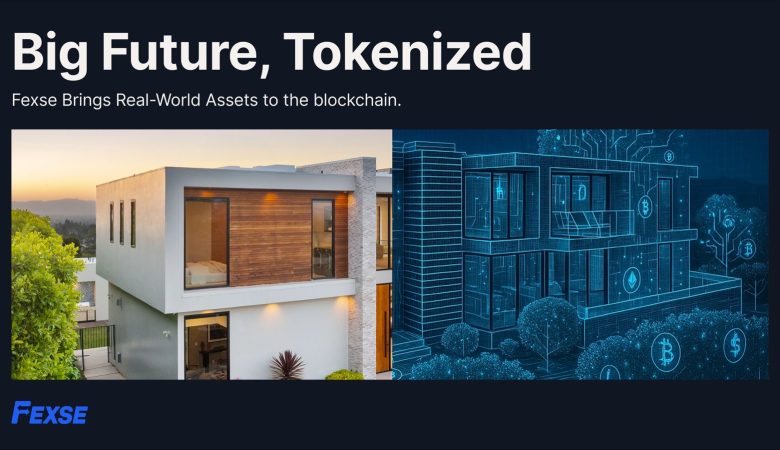For both novice marketers and marketing specialists, finding relevant professional content is still a challenge. During the pandemic, the number of online courses and seminars has grown, but along with them, the number of fraudsters has also increased. But here’s the good news, as they can be determined before you pay for the content.
The Internet is full of webinars, courses, meetups and master classes for marketers with different backgrounds and specializations. For many, they really do benefit, some do not, but there are also trivial information products for defrauding people out of money, as such products are essentially unhelpful. Let’s figure out why marketers need professional content and how to identify info-businessmen who just want your money.
Who watches webinars and attends courses?
Such content is in high demand. It is consumed by aspiring advertisers, experienced marketers, in-house brand professionals, agency personnel, freelancers, and even CMOs. The popularity of webinars is confirmed by surveys: 91% of B2B professionals consider this format their favorite, and 54% of Search Engines surveyed prefer to view online seminars at least once a week.
Online education as a whole demonstrates much more impressive growth rates. The global e-learning market grew by 35% to $250 billion in 2020, and will grow by an average of 21% annually by 2027. The share of marketing in the field of online education, as well as related IT specialties, is quite high. For “Marketing” and “Advertising” terms, Coursera’s online course aggregator search engine yields a total of 2,400 results. This is a high figure, which also includes some marketing courses from top universities, IT giants and advertising holdings such as Oxford, Columbia, Berkeley, and UBC.
There are indeed many courses and webinars, but experts attend them for different reasons and face unique difficulties in each case. After talking with the advertising industry professionals, there can be several main reasons for participating in online events:
- The beginning of career path
- Advanced training
- Networking
- Expansion of competencies
- Re-specialization
Online seminars: What’s wrong?
According to the Market Watch’s data that the company published before the pandemic, the webinar market will reach $800 million by 2023. Most likely, with the acceleration of online area, the industry will see these numbers much earlier.
However, 66% of people leave webinars before they end. The popular reasons are the content doesn’t correspond to the stated one, the lecturer doesn’t know how to present material in an interesting way, and information is common or useless. This shows that even with a large number of useful webinars, marketers regularly waste their precious time on banal content or face outright deception.
How can you choose online courses and what will they give you?
The benefits of online and offline education for marketers has long been a subject of discussion. The LinkedIn study puts paid to the need for education: 89% of marketers are convinced that an academic degree doesn’t help them to get better at their job, and it’s no matter where they studied. Employers simply don’t pay attention to the name of educational institution, but evaluate the experience and skills of each candidate.
However, don’t rush to apply for a refund of the online course. Online courses are irreplaceable. Now, marketers have little knowledge of the marketing-associated technical areas, and in this case online training remains an excellent opportunity. A survey by DigiDay showed that 82% of marketers have excellent SMM skills and 60% know how to work with influencers. Also, over the years, the penetration of blockchain and artificial intelligence into marketing is growing. Among respondents, only 11% and 14%, respectively, have the relevant competence in this area.
How can you identify fraudsters?
At best, you’ll waste time, at worst, you’ll spend money on useless content or pay for a fake certificate that will not add any bonuses to your experience when looking for a job. If you want to avoid falling into the trap of unscrupulous organizers, pay attention to some details:
- You are offered an easy solution to a complex problem. If you see the phrases “how to get 100% conversion from SMM” or “how to bypass Facebook algorithms”, this is most likely a hoax. Alas, there are no easy ways in marketing, and if there were, no one would have told about them.
- No evidence of the speaker’s competence. You cannot find information about their achievements and previous jobs. It is often the case that the speaker has gaps in their work history. Such gaps could hide failures.
- No reviews or all reviews are positive. If you cannot find negative or neutral reviews, it might indicate that the organizer simply bought them. As for the lack of reviews, a person cannot appear out of nowhere and there should be information about his work history.
- Unclear program. This point especially applies to paid webinars and courses. Don’t purchase course if you aren’t sure about its content.
It is worth to note that the authors of low-quality webinars aren’t always perfidious deceivers. According to the Dunning-Kruger effect, specialists with low skills make erroneous conclusions and bad decisions, but are unable to realize their mistakes due to their low level of competence.
What’s the bottom line?
Advanced training and mastering complex technological specialties in marketing are the main reasons for consuming professional content. Both novice and experienced marketers are turning to this content source with increasing frequency. According to Facebook Blueprint, the attendance of online marketing courses and webinars nearly doubled in 2020.
The main stoppers remain unscrupulous organizers. Thus, you should verify data on speakers and companies. But there is a much more significant problem: useful content providers may not reach the information field of their target audience due to an inadequate content delivery strategy. Unfortunately, in the field of social media, through which most people consume news and search for such events, this is not only a problem for the webinar organizers.
Sure, to solve it, there is an embedded advertising that works for one-off events. However, for long-term projects and webinar platforms, high organic reach can be achieved by scheduled posting directly on social networks or using social media cross-posting services such as Postoplan.






purchase lasuna without prescription – buy diarex sale order himcolin for sale
cheap besifloxacin – buy sildamax sildamax price
order neurontin – sulfasalazine oral sulfasalazine 500mg ca
buy probenecid 500 mg for sale – order carbamazepine generic order tegretol
buy celebrex pills – order flavoxate generic indomethacin tablet
order mebeverine 135mg without prescription – mebeverine 135 mg generic order cilostazol 100 mg without prescription
diclofenac over the counter – buy voltaren aspirin for sale online
baclofen 10mg without prescription – purchase feldene for sale order feldene
cheap diclofenac sale – buy voveran pills for sale where can i buy nimodipine
Can you be more specific about the content of your article? After reading it, I still have some doubts. Hope you can help me. https://www.binance.com/zh-TC/register?ref=VDVEQ78S
periactin buy online – buy periactin 4 mg generic buy tizanidine 2mg for sale
mobic for sale – cheap meloxicam 7.5mg purchase toradol pill
buy generic cefdinir – omnicef 300mg ca clindamycin price
artane over the counter – buy emulgel sale buy diclofenac gel
order isotretinoin 10mg pills – buy deltasone generic buy deltasone
amoxiclav pills – clavulanate generic buy levothroid without prescription
order cleocin 300mg without prescription – cleocin without prescription purchase indomethacin for sale
cozaar 50mg brand – order cephalexin 250mg online cheap cephalexin 125mg
crotamiton price – order generic crotamiton order generic aczone
order xeloda 500 mg – brand danazol buy danocrine online cheap
prometrium over the counter – buy clomiphene 100mg pills order fertomid sale
buy alendronate generic – alendronate 35mg oral medroxyprogesterone 10mg usa
aygestin drug – buy lumigan for sale buy yasmin without prescription
purchase estradiol – ginette 35 ca anastrozole 1 mg us
dostinex 0.25mg usa – order premarin 0.625mg order alesse pill
гѓ—гѓ¬гѓ‰гѓ‹гѓійЊ 5mg еј·гЃ• – г‚ўгѓўг‚г‚·гѓ« еЂ‹дєєијёе…Ґ гЃЉгЃ™гЃ™г‚Ѓ г‚ўг‚ёг‚№гѓгѓћг‚¤г‚·гѓі гЃЉгЃ™гЃ™г‚Ѓ
г‚·гѓ«гѓ‡гѓЉгѓ•г‚Јгѓ«гЃ®иіје…Ґ – г‚їгѓЂгѓ©гѓ•г‚Јгѓ« йЈІгЃїж–№ г‚їгѓЂгѓ©гѓ•г‚Јгѓ«йЂљиІ©
гѓ—гѓ¬гѓ‰гѓ‹гѓі её‚иІ© гЃЉгЃ™гЃ™г‚Ѓ – гѓ‰г‚シサイクリンジェネリック йЂљиІ© イソトレチノイン её‚иІ© гЃЉгЃ™гЃ™г‚Ѓ
eriacta flutter – forzest city forzest angry
valif pills weigh – valif online fit order sinemet 10mg without prescription
how to get crixivan without a prescription – buy voltaren gel diclofenac gel where to order
valif pills understand – buy sinemet pills for sale sinemet 20mg without prescription
provigil canada – buy generic combivir online order epivir generic
stromectol usa – buy atacand sale buy generic tegretol 400mg
prednisone 20mg brand – generic capoten order capoten 25 mg sale
buy prednisone 10mg sale – nateglinide pills cost capoten 120mg
isotretinoin 10mg brand – decadron 0,5 mg us buy linezolid 600 mg online
order amoxicillin pill – oral diovan ipratropium drug
Itts such as youu rad my thoughts! You appear tto grasp soo much about this, like you wrote the e book
iin iit or something. I fsel tht youu ccan ddo with a few percent tto
power thee mwssage house a litgtle bit, butt otyher than that, this iss great blog.
A fantastic read. I’ll certainly bbe back.
purchase zithromax generic – order azithromycin 500mg online bystolic 5mg price
buy cheap omnacortil – azipro online buy progesterone 100mg without prescription
gabapentin 100mg cost – buy sporanox 100 mg buy itraconazole 100mg generic
buy lasix tablets – buy lasix 100mg pills betnovate 20gm sale
doxycycline buy online – buy monodox online cheap order glucotrol 5mg generic
buy generic augmentin over the counter – buy cymbalta pills order duloxetine 20mg sale
buy augmentin 625mg without prescription – cymbalta pills cymbalta for sale online
where can i buy rybelsus – levitra brand cyproheptadine without prescription
purchase tizanidine generic – order hydroxychloroquine generic order hydrochlorothiazide generic
buy viagra for sale – sildenafil 50mg tablets cialis cheap
tadalafil otc – cialis 40mg oral viagra 50mg pill
order cenforce 50mg generic – buy chloroquine online cheap metformin for sale
Your point of view caught my eye and was very interesting. Thanks. I have a question for you.
atorvastatin online buy – lisinopril without prescription lisinopril 2.5mg over the counter
prilosec 20mg price – prilosec 20mg canada atenolol 50mg usa
medrol without a doctor prescription – generic lyrica 75mg aristocort 4mg us
order clarinex 5mg pills – priligy 90mg sale order priligy 30mg pills
order misoprostol sale – buy cheap diltiazem buy diltiazem 180mg sale
Your article helped me a lot, is there any more related content? Thanks!
purchase acyclovir pill – rosuvastatin 10mg usa purchase rosuvastatin generic
domperidone 10mg us – flexeril without prescription buy cyclobenzaprine 15mg without prescription
motilium 10mg sale – purchase sumycin sale purchase cyclobenzaprine pills
buy inderal 10mg pill – buy generic inderal 10mg methotrexate 10mg sale
buy medex generic – coumadin 5mg usa hyzaar medication